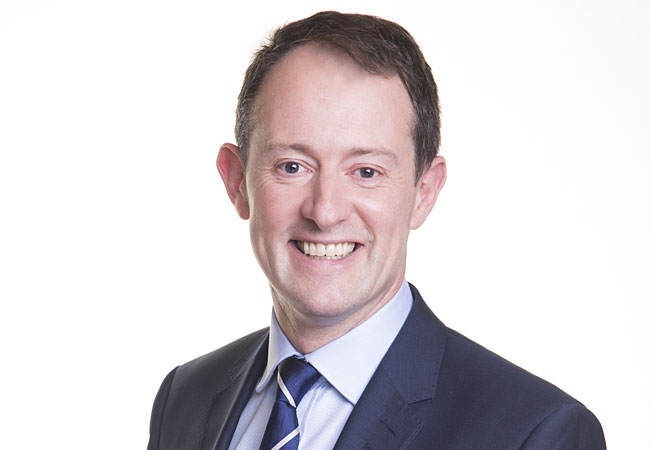Local News
Families need follow on services and respite relief – Sherlock
- Share
- Tweet /home/eastcork/public_html/wdir/wp-content/plugins/mvp-social-buttons/mvp-social-buttons.php on line 68
https://www.cobhedition.com/wdir/wp-content/uploads/2020/07/sean2.jpg&description=Families need follow on services and respite relief – Sherlock', 'pinterestShare', 'width=750,height=350'); return false;" title="Pin This Post">

Speaking across two debates in the Dáil in Leinster House and the Convention Centre last week, Cork East TD Sean Sherlock called on the Government to follow through on pledges for families who desperately need services restored in the areas of Occupational Therapy and day services to name just two.
“It is not common sense to take an occupational therapist who is working in the HSE and put them to work contact tracing,” said Deputy Sherlock on Wednesday afternoon in Leinster House to the Minister for Health.
“That person is a front-line worker and we do not know how many of them have been redeployed to contact trace. How many people in this State need occupational therapy as we speak? It is not common sense to put an assistant psychologist who could be working with a family feeling the psychosocial effects of Covid-19 into contact tracing or testing. A skewed public policy is in place at present where good front-line workers are being taken from key and essential jobs and being put into areas in which they should not be deployed. There needs to be a root-and-branch review of how Covid is being dealt with and whether scarce resources are being deployed in the most effective way.”
Deputy Sherlock again raised the matter on Thursday in the Convention Centre to Minister for Disabilities, Anne Rabbitte.
“The announced €7.8 million is a significant sum of money but it will only become so if the follow-on services are provided,” said Deputy Sherlock.
“Last night in the House I raised the issue of professionals such as occupational therapists being deployed to contact tracing and even testing. That makes a mockery of any attempts to ensure people who rely on the follow-on services arising from an assessment of need would get those services. I ask the Minister of State to take a closer look at that to see if those people can be brought back into a core front-line service. If the announcement of the €7.8 million is to mean anything for families, it should mean a follow-on service becoming available arising from the retrenchment of those who are otherwise engaged at present.
“Some 90% of the services might be open but that does not mean people have access to 90% of services. People are back on a part-time basis and it is still very piecemeal. Until we get to the stage where people have full access to the services they have always enjoyed and have a right to, there is a long way to go.”
Deputy Sherlock also highlighted the issues at St Joseph’s Foundation in Charleville and it’s respite house.
“One of its facilities, Cooleens House, has been reassigned as an isolation centre,” said Deputy Sherlock . It was a respite house and respite is key to all of these services for families. If Cooleens House could revert to a respite house and some other such facility could be found to provide for isolation, that would send a clear and positive signal to those who use the services of St. Joseph’s Foundation. I make the case for respite services. I ask the Minister of State to reply, if not today then at some stage, regarding the metrics for every single person or group who should have access but do not have access at full capacity at this time. If that issue were addressed and a full service restored, it would bring relief to many families.”
Deputy Sherlock also called for a re-examination of the relationship between the HSE and the section 38 and 39 organisations?
“The voluntary organisations are very much price takers. They have to accept the budget they are given. They must then raise funds, which has been challenging in the current climate. I ask that the HSE, on ministerial direction, give some ground and financial leeway to these organisations in the current climate in order that they can get on with restoring the services to which people are entitled. In my experience, the relationship with the HSE has sometimes been lopsided. The HSE has come in waving a stick or beating the drum against some section 38 and 39 bodies. In the current climate, these organisations need a little financial headroom and leeway to allow them to deliver services. There needs to be a rebalancing of their relationship with the HSE.”
-

 Local News3 weeks ago
Local News3 weeks agoSpike Island’s After Dark Tours return: Explore the haunting history of iconic prison island once dubbed “Ireland’s Hell”
-

 Local News7 days ago
Local News7 days agoCyclists of all abilities encouraged to join Fort2Fort Charity Cycle 2024Saturday, 8th June
-

 Local News7 days ago
Local News7 days agoCrosshaven RNLI Assist Two on Disabled Yacht
-

 Announcements7 days ago
Announcements7 days agoCobh Youth & Social Projects CLG have the following vacancies
-

 Events & Entertainment7 days ago
Events & Entertainment7 days agoSIRIUS ARTS CENTRE: COMMISSION: Aikaterini Gegisian
-

 Sport6 days ago
Sport6 days agoJohn O’Shea extended as Interim Head Coach for June window
-

 Local Soccer2 weeks ago
Local Soccer2 weeks agoCobh Wanderers face College Corinthians in 1st Round of Sports Direct Men’s FAI Cup








